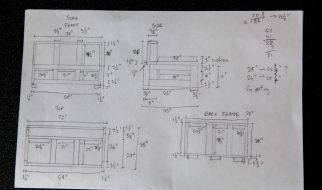If you?re already thinking about it, the job probably isn?t a good fit.
 Image by Ag Ku from Pixabay
Image by Ag Ku from Pixabay
When interviewing for a new job, you?re excited. You?re a yes-man in the interview to every responsibility and task because you know what getting this job represents. It means you can finally stop checking your e-mail every five minutes in hopes of application callbacks.
One issue though, your now new job fucking sucks.
Maybe it?s your cold offensive co-workers, perhaps the work environment doesn?t click, or maybe the actual day to day is just not something you can do. The honeymoon phase lasted all of one single morning, and you now stress every waking minute about going to work.
For the most part, this was me. I was on the job hunt on and off for about eight months when coming into a new role. I said everything I needed to say to get the job and never thought about the long term. This was stupid of me because again,
The job fucking sucked.
There were a lot of things I didn?t like about it, but none of it lead to me quitting outright. I didn?t relate to my co-workers, but they weren?t hostile. The pay was terrible, but more than I was making as a barista. The work space was fairly run-down, but I had my own office.
These issues were manageable and not the main reason I quit. On the first day of work, I was given a list of names, two hundred strangers, and was instructed to call them selling our services.
Business Marketing Executive? No, I was a glorified telemarketer.
Not meaning to throw people who do cold call sales work under a bus. Honestly, shout out to everyone who can do it, you have a real skill of perseverance I will never have.
I quit that job after a month and learned some extremely key things in doing so.
Understand why you want to quit your job
This understanding may sound obvious, but when I told myself I was leaving my new career I had to look at why I was so miserable.
If you?re in a similar boat, do this quick exercise-you?ll probably hate it.
Take a pen and paper and write down every reason you are miserable at your current job. Are you unhappy because you have to get up early and you no longer have free time? Reasons like this aren?t reasons to quit your job right then and there. You?ll just jump right back into the same situation, just now you?ll be a couple of steps behind.
Here was my list,
- I had to call 100 strangers a day and get told repeatedly to get a real job.
- I was getting paid almost minimum wage since my commission was zero.
- My commute was across the city, my office located in an industrial park.
- I didn?t relate to my co-workers very well, they were all ten years older than me at least.
- I started developing stress headaches and got them daily.
If your list convinces you as mine did, you are probably good to start making moves to get out of there. The main thing you should look for and think about is, will you find something better or different with your current skill set? A lot of jobs, especially entry-level work, won?t be ideal. The pay might be terrible, you might have to do some pretty menial tasks, and maybe your co-workers aren?t the greatest. Grinning and bearing minimal stuff is something you?ll reasonably have to deal with when you start. You shouldn?t quit because your job isn?t perfect in every way, a job is a job, and there will always be slow days.
Also, don?t pay attention to people posting about their work on Instagram, you?re looking at the best five percent of your friend?s lives.
If all the menial issues start adding up and are dealing with fundamental stress around the core of what you have to do, it?s probably smart to jump ship.
Get a head start on the job hunt
My Dad always tells me, it?s a hell of a lot easier finding a job when you have one oppose to when ya don?t. When you apply for work while unemployed, you sit there and wait for a response, refreshing you?re Gmail every couple minutes. Pure agony. Replies to applications can take a very long time, and it?s best to keep yourself busy.
Your current job may suck, but it does check this box of keeping you busy. Sure it means doing some work after hours going through the job boards and writing cover letters, but it?s frankly better than having to much time on your hands.
I made the rule that every night I would apply for one position after work. It usually took less than an hour and once I did it, my situation felt a lot more manageable.
Applying for other jobs is sometimes just a good practice in general. You can sometimes feel stuck when you?re unhappy with your situation and searching for work can shift your outlook on what you can do with your life. This fact goes double for when you?re in a job you hate. If you do something for the majority of your day, it can feel like your life success is based on your current position.
It?s not.
Apply for other work, even if you don?t get it, you?ll feel a lot more free, knowing there are always other options out there.
 Image by Free-Photos from Pixabay
Image by Free-Photos from Pixabay
Be flexible with your current employer
As much as your new employer might suck, you owe them a proper heads up. You accepted this job and unless it was a straight-up essential oils type pyramid scheme, you quitting will be a significant hindrance on their work, especially if you went through a lot of training.
The best thing you can do is give your work enough heads up to handle your transition with some ease. Two weeks usually being the standard for this. It can be more, shouldn?t be less. Two weeks isn?t enough to find a replacement, but it?s better than nothing.
Don?t be that asshole who stops showing up. Yes these people won?t be your reference, and yes you?ll probably never deal with them again, but I?m telling you, don?t be that asshole that stops walking into work. It?s going to be a lot harder to deal with those consequences in the long term than giving proper notice.
Be honest with your boss
The day I knew I was quitting I stood at a crossroads of how to deal with it, as I?m sure many people have. On the one hand, I could lie, say my family was going through something traumatic and leave with false sympathy. This option I considered much more seriously than I would care to admit. It seemed like the simple option, no need for explanation, I could just leave with everyone feeling bad for me.
If you are considering this I can tell, it?s not the right solution.
Be honest with your co-workers and boss. If the job isn?t a good fit, it isn?t a good fit. This honesty may make you seem like more of a quitter in their eyes, but on some level they will respect your honesty. I walked into my bosses office and told him directly that I did not feel like I was suitable for this position, and took full responsibility for accepting it in the first place.
He was unhappy but understood.
If you are in a position that you are considering quitting, odds are your job can be filled by someone else, better at that role. My old work and I are much better off because I made that call to quit before things got any worse.
Conclusion
You?re not a quitter, stop telling yourself that. Sometimes a role is just not a good fit and you identifying that now is going to avoid a lot of problems down the road. Look at why you?re quitting and if your reasons convince you, start applying tonight. Be honest with your boss and flexible with your situation, you may get taken through a bit of a grinder for the next couple weeks but in three months from now, you?ll be thanking yourself.
I know I am.


